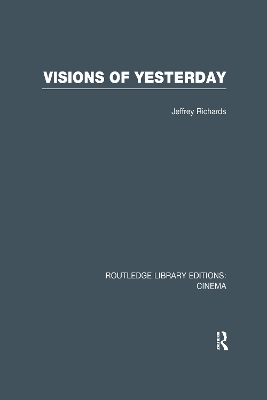Routledge Library Editions: Cinema
2 total works
This fascinating study of the genre of swashbuckling films received wide critical acclaim when it was first published in 1977. Jeffrey Richards assesses the contributions to the genre of directors, designers and fencing masters, as well as of the stars themselves, and devotes several chapters to the principal subjects if the swashbucklers – pirates, highwaymen, cavaliers and knights. The result is to recall, however fleetingly, the golden days of the silver screen.
Reviews of the original edition:
‘An intelligent, scholarly, well-written account of adventure films, this work is sensitive both to cinema history and to the literary origins of the "swashbuckler"….Essential for any library with books on film, it may very well be the definitive book on its subject.’ – Library Journal
Film is an important source of social history, as well as having been a popular art form from the early twentieth century. This study shows how a society, consciously or unconsciously, is mirrored in its cinema. It considers the role of the cinema in dramatizing popular beliefs and myths, and takes three case studies - American populism, British imperialism, German Nazism - to explain how a nation's pressures, tensions and hopes come through in its films. Examining the American cinema is accomplished by analysing the careers of three great directors, John Ford, Frank Capra and Leo McCarey, while the British and German cinemas are studied by theme. The analysis of the British Empire as seen in film broke exciting new ground with a pioneering account of 'the cinema of Empire' when it was first published in 1973.
With full filmographies and a carefully selected bibliography it is an outstanding work of reference and its lively approach makes it a delight to read.
Reviews of the original edition:
'A work of considerable force and considerable wit.' - Clive James, Observer
'...a work that is original, mentally stimulating and most pleasurable to read.' - Focus on Film

